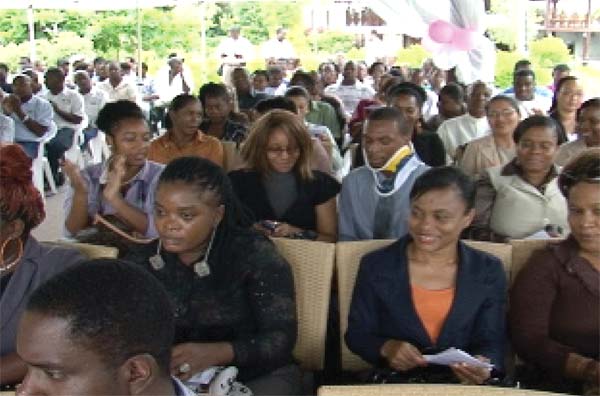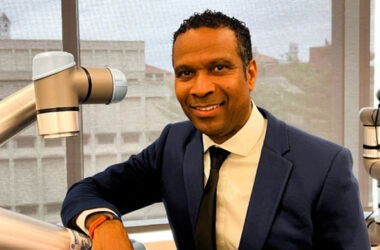
TODAY we continue serializing the report of the Constitutional Reform Commission with Chapter Seven which is titled: RE-ENGINEERING THE PUBLIC SERVICE
The Public Service
In every truly democratic society a public servant holds a unique status in many respects. As the servant or agent of the State, he/she enjoys special advantages and protections and correspondingly submits to certain restrictions. The public servant’s distinctive position is recognized in the existence of a special chapter, Chapter VI, in the existing Constitution containing provisions relating to them and also to the express provisions in sections 10 and 11 authorizing restrictions on their freedom of expression and of association and assembly, respectively.
The Public Service of Saint Lucia is part of the executive branch of Government and was originally established as part of the machinery of the colonial administration. Today, after thirty-two years of independence the ethos and regulations of the service remain substantially patterned upon that of Britain. As a result, and following the British tradition, the Public Service is characterized more or less by permanence, confidentiality, anonymity and political neutrality. The permanence of public servants ensures that the public service does not change with the government. As a result, public servants should acquire a sense of duty to the country since they do not work for the goals of the political party in power – instead they work towards administering the country. Confidentiality ensures that all the advice that public servants give to Ministers remain secret so as to enable public servants to be totally frank with such advice without fear of reprisal. Through anonymity, the public remains unaware of the intricate details of the actual work done by individual public servants. The Minister (as distinct from the public servants) remains the one who is accountable to both the electorate and the Parliament. And finally, political neutrality should ensure that public servants do not bring their political views into their work. They are expected to be non-partisan. To make this possible the current Constitution insulates members of the Public Service and the police service from any political influence that may be exercised directly on them by the government of the day. The mechanism adopted for doing so is to vest in autonomous commissions, to the exclusion of any other person or authority, power to make appointments, to remove and to exercise disciplinary control over members of the public service.
Underlying these characteristics is the legitimate concern that the Public Service and its servants should be seen to serve the public in the administration and implementation of government policies and programmes, in an impartial and effective manner. The preservation of the impartiality and neutrality of public servants has long been recognised in democratic societies as of critical importance in the preservation of public confidence in the conduct of public affairs. The point is made by Hood Phillips’ Constitutional and Administrative Law63 that:- “… the public interest demands the maintenance of political impartiality in the Public Service and confidence in that impartiality as an essential part of the structure of government in this country.”
A major challenge facing the Public Service in the post-independence era is that of making a paradigm shift from administration to management. The classical Weberian philosophy of an ideal type bureaucracy whereby the existence of a hierarchy was the foundation for building a career in the public service on the basis of seniority and promotion until retirement and using the tools of administration of public policy as opposed to management of public policy has since been challenged. In addition, the realitiy that face modern human resource practice is the need, given the ever-increasing rate of change in the modern environment, for organisations to cultivate the practice of self-renewal. The hallmarks which may have characterised a “good” employee of yesteryear are no longer valid in today’s extremely competitive world, and given the ever escalating cost of the Public Service, the taxpayer deserves the best that can be provided, both in terms of service and productivity.
The issue of the “permanence” of public servants has been placed under examination by both the disappearance of the loyalty that once existed in the psyche in the public servant, and factors such as the growing tendency to recruit “contract” officers. In the face of the rapidly increasing pace of change, there will always be the need to inject specialist expertise into a dynamic public service. The injection of such expertise, however, must be carefully done; it cannot be assumed that the most brilliant technician is not the worst possible manager. The institutionalisation of appointments by contract throughout the Public Service may provide a solution to this issue. In this regard, the approach could be to define specific posts within the Public Service where such appointments could be made.
The hallmark of the good manager is to become thoroughly acquainted with the culture of his/her new organisation, and to try and bend that culture gradually in the direction of excellence. The “inertia” which is often complained about is however, a necessary “check and balance” which enables careful study of new policy – the good public servant is very familiar with the attention and action required in an emergency. The inexperienced one may not necessarily know which buttons to press.
The public’s perception of the public service seems to suggest that the political protection offered by Chapter VI in the Constitution is being abused. This stems from the usually inordinate delay in the hearing of disciplinary offences coupled with what appears as no serious culture within the Service to tackle these problems. There is also a feeling that corruption within the Service is astronomical and occurs at senior levels.
The Report of the Marlborough House Conference in 1978 reveals the following discussion under the heading “The Public Service” from paragraphs 26 to 28: “26. A proposal by the Leader of the Opposition that the Prime Minister should consult the Leader of the Opposition before advising the Governor General on the appointment and removal of the Chairman and members of the Public Service Commission and certain other public service officers was agreed. 27. The Conference agreed that the Teaching Service Commission should be among the public bodies given specific recognition in the constitution. 28. The Conference agreed that the Public Service Board of Appeal should consist of a Chairman, a member appointed on the advice of the Prime Minister, and two members appointed by the Governor General after consultation with the various appropriate bodies representing the public service associations.”
Some of the submissions for reform of the Public Service that were received by the Commission may be summarised as follows: –
(a) That the concept of a neutral, non-political public service be retained;
(b) The jurisdiction of the Service Commissions should be extended to members of Statutory Corporations and members of Statutory Boards; it is therefore recommended also that a special Commission be introduced for statutory bodies, and a common professional resource service all of the Commissions’ requirements under the aegis of the Public Service Ministry.
(c) That Public Officers below a certain grade or rank should be given a constitutional right to sign public petitions, take part in the management of newspapers, furnish the press with letters or articles which are of a “political or administrative nature”, give broadcast talks and participate in discussions of a political or administrative nature;
(d) That members of the Service Commissions should be appointed by the Head of State (President) in the following manner (a) the Chairman, acting in accordance with the advice of the Prime Minister (b) one member, acting in accordance with the advice of the Prime Minister after consultation with the relevant employees’ representative e.g. Saint Lucia Civil Service Association; and (c) up to three members on the advice of the Prime Minister after consultation with the Leader of the Opposition;
(e) That members of the Service Commissions should enjoy tenure as well as protection of conditions of service;
(f) That there should be a quarantine period during which retiring members of the Commissions may not hold public office;
(g) Removal of members of the Commissions should only be for cause; and
(h) That there should be a Tribunal hearing before dismissal of members of Service Commissions. Such Tribunal should be appointed by the Head of State and chosen from persons who hold or have held or are eligible to hold high judicial office.
(i) The issue of corruption should be addressed by creating internal mechanisms of accountability in respect of lower level public officials but a more inquisitorial mechanism for senior officials such as the politicians, permanent secretaries and heads of departments by which they could be investigated without prejudice or favour and if found guilty suffer the consequences like any other ordinary person.
(j) The institutionalisation of appointments by contract for specific post within the Public Service which should exclude posts of Permanent Secretary and Head of Department.
(k) There is need for a Procedures Manual or and Operations Manual for the Public Service.
If the nature of the concerns which were expressed by both members of the public and by public servants themselves, are examined carefully, it will be noticed that they point to a realisation that the management of the human resource, the most important asset of any organisation, and certainly the most expensive commodity of the Public Service, does not appear to have kept pace with the developments which have occurred since independence. The role of the Service
Commissions therefore, is paramount, and their leadership is crucial. The staffing resources withwhich they are equipped need also to be carefully chosen and thoroughly trained.














